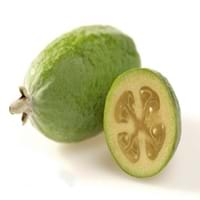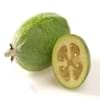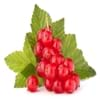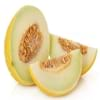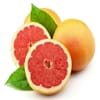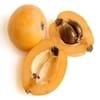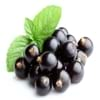Health Benefits
Anti depressant, Cancer prevention, Reduces nervous tension, Treatment of alzheimer's disease, Treatment of Lung disease
Anti-oxidant properties, Anti-inflammatory properties, Cancer prevention, Maintains healthy cholesterol level, Reduces blood circulation problems, Treatment of cough, fever & sore throat, Treatment of Hypertension
General Benefits
Digestive aid, Helps in weight loss, Improves blood circulation, Strengthens bones, Treatment of common cold
Treatment of asthma, Treatment of cataract, Treatment of hepatitis, Treatment of macular degeneration, Treatment of neurodegenerative diseases
Skin Benefits
Brightens and lightens complexion, Skin rejuvenation
Treatment of Rheumatism & Dermatitis, Treatment of Skin Inflammation
Hair Benefits
Promotes longer and healthier hair, Protects hair
Unknown
Side Effects
Allergic reaction
Hypertension, Ventricular Tachycardia
Best Time to Eat
As a snack in the late afternoon, Don't consume at night and before bed, Eat the fresh ones, avoid mixing with any other foods, don't eat after meal., Morning time (before lunch)
As a snack in the late afternoon, Eat the fresh ones, avoid mixing with any other foods, don't eat after meal., Morning time (before lunch), Strictly avoid empty stomach
Vitamin A (Retinol)
Not Available
Vitamin B5 (Pantothenic Acid)
Not Available
Vitamin B6 (Pyridoxin)
Not Available
Vitamin B9 (Folic acid)
Not Available
Vitamin C (Ascorbic Acid)
Vitamin K (Phyllochinone)
Not Available
Lutein+Zeaxanthin
Not Available
Water Content
Not Available
Calories in Fresh Fruit with Peel
Not Available
Calories in Fresh Fruit without Peel
Not Available
Calories in Frozen Form
Not Available
Not Available
Calories in Dried Form
Not Available
Calories in Canned Form
Not Available
Not Available
Type
Tree fruit
Fruit vegetable
Season
Autumn, Winter
Spring, Summer
Varieties
Anatoki, Gemini, Kaiteri, Kakariki, Pounamu, Unique, Apollo, Den's Choice, Kakapo, Mammoth, Opal Star, Triumph and Wiki Tu
Physalis franchetii, Physalis pruinosa, Physalis peruviana, Physalis heterophylla and Physalis philadelphica
Color
Green
Bright Yellow, Orange
Inside Color
White
Orange
Origin
Argentina, Brazil, Paraguay, Uruguay
Chile, Peru
Grows on
Not Available
Bushes
Soil Type
Clay loam, Gravely loam, Sandy
NA
Climatic Conditions
Cold, Warm
NA
Facts about
- Feijoa is called as "pineapple guava" in some countries.
- Feijoa tree is an ornamental plant that can also be used as hedge & windbreak.
- All parts of feijoa fruit are edible(skin is mostly discarded).
NA
Top Producer
New Zealand
NA
Other Countries
Australia, Azerbaijan, India, Japan, United States of America
NA
Top Importer
China
Netherlands
Top Exporter
New Zealand
Colombia
Botanical Name
Acca sellowiana
Physalis Peruviana
Synonym
Feijoa sellowiana or Orthostemon sellowianus
Alkekengi, Herschellia & Pentaphitrum
Subkingdom
Tracheobionta
Tracheobionta
Division
Magnoliophyta
Magnoliophyta
Class
Magnoliopsida
Magnoliopsida
Subclass
Rosidae
Asteridae
Family
Myrtaceae
Solanaceae
Species
A. sellowiana
Physalis
Generic Group
Myrtle
Not Available
Difference Between Feijoa and Physalis
We might think that Feijoa and Physalis are similar with respect to nutritional value and health benefits. But the nutrient content of both fruits is different. Feijoa and Physalis Facts such as their taste, shape, color, and size are also distinct. The difference between Feijoa and Physalis is explained here.
The amount of calories in 100 gm of fresh Feijoa and Physalis with peel is Not Available and 77.00 kcal and the amount of calories without peel is 55.00 kcal and Not Available respectively. Thus, Feijoa and Physalis belong to Low Calorie Fruits and High Calorie Fruits category.These fruits might or might not differ with respect to their scientific classification. The order of Feijoa and Physalis is Myrtales and Solanales respectively. Feijoa belongs to Myrtaceae family and Physalis belongs to Solanaceae family. Feijoa belongs to Acca genus of A. sellowiana species and Physalis belongs to Physalis genus of Physalis species. Beings plants, both fruits belong to Plantae Kingdom.
